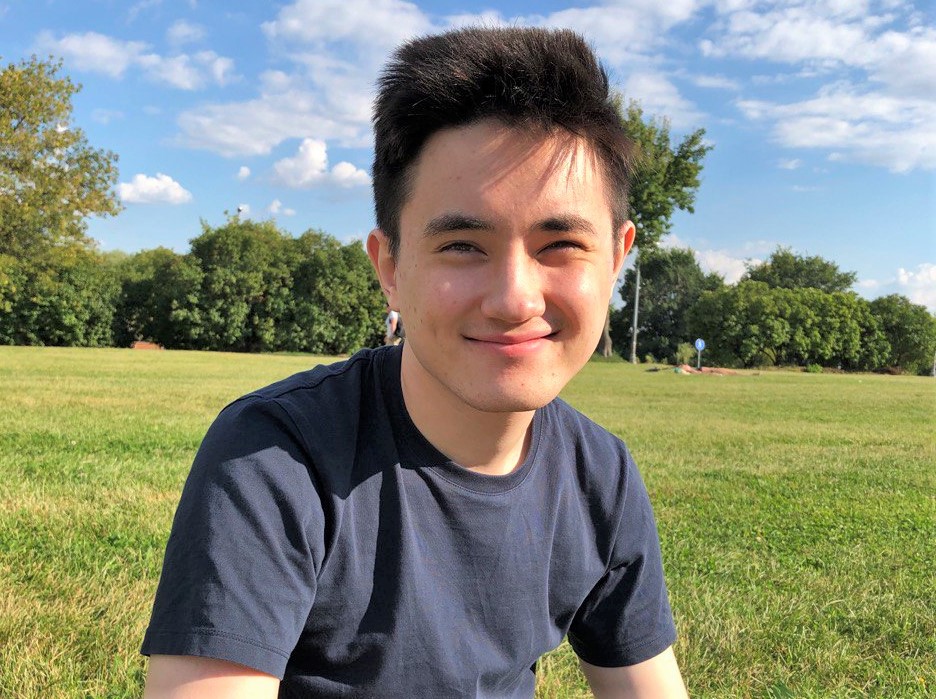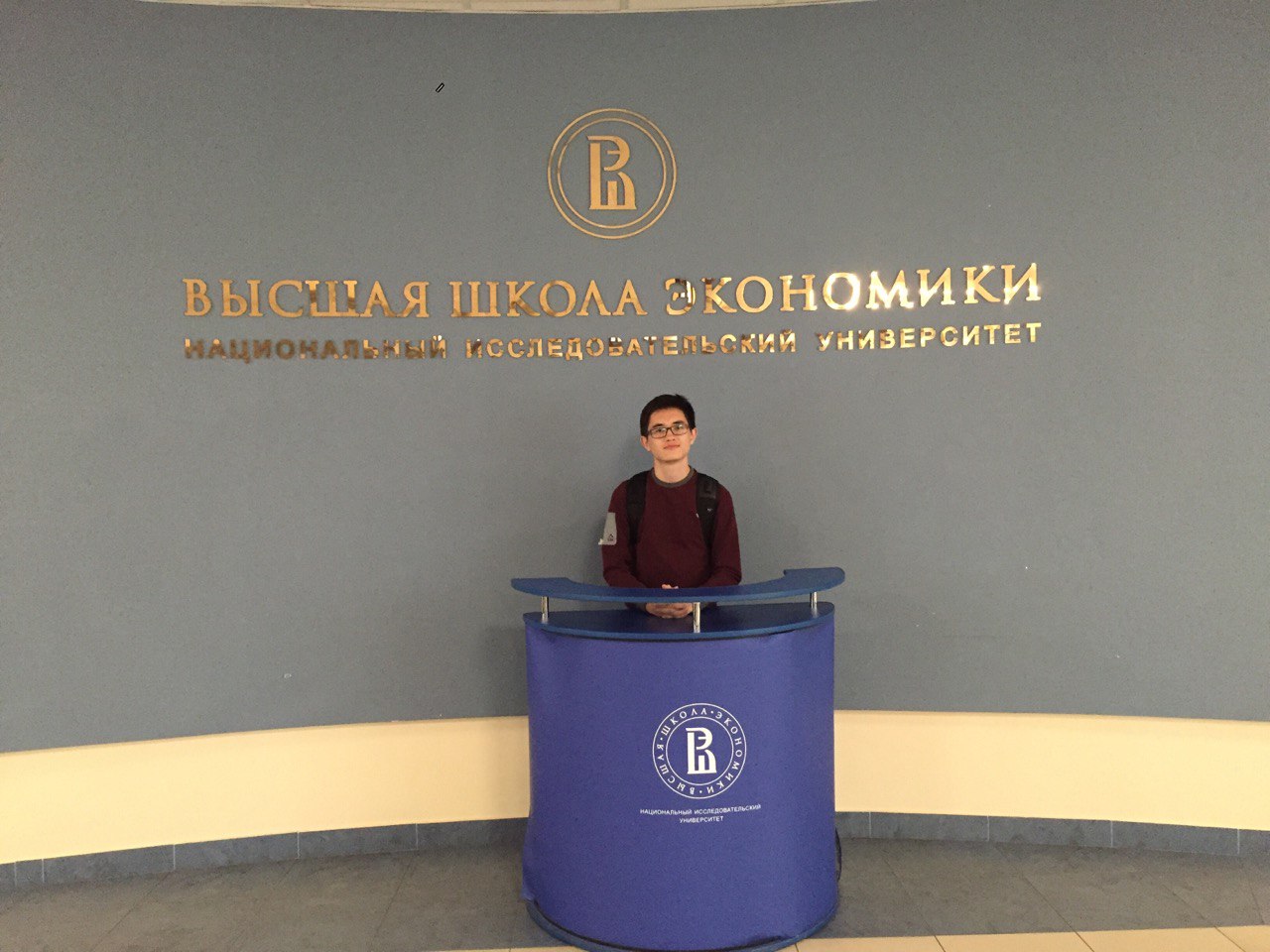“I Took All Courses from Master's Curriculum Because They Didn’t Have Data Science Programme for Bachelors”

Akhmad Sumekenov, a graduate of the Applied Mathematics and Computer Science programme, spoke about his studies at the Faculty of Computer Science, his internships and his trip to Italy.
Enrolment and study
I decided to go to the Faculty of Computer Science at the last moment. I heard about this Faculty for the first time at the math camp in Kirov. It was 2014, and nobody knew about the Faculty because it was just opening. I did not seriously think about applying there, and after graduation, I was going to enrol to HSE University’s Faculty of Economics because my classmates were going there. Then I decided that there were already too many economists. I remembered about the Faculty of Computer Science and found their website. I was caught there because the Faculty was created with the support of Yandex - I knew it was a top company.
For the next four years, I kept saying, “How lucky it was that I ended up at the Faculty of Computer Science.” The first year was very difficult - before admission I thought I knew programming, but it turned out that I didn't. There were many difficult tasks, and I was tired faster than they ended. At one time, I even thought about transferring to the Faculty of Economics, because I saw that there was much less math. It was easier to study at, my classmates told me. Then I got used to the workload and realised that it was normal, although the next years were difficult too.

Internships
During the first year, I thought I would focus on research, take part in conferences, and publish, but, in the second year, I chose industry and applied for an internship at Tinkoff. It was easy for me because I managed to take a great course on machine learning.
After the third year, I took an internship at S7 and stayed there as a developer. Combining studies, thesis, and work was hard, but possible, especially because I started my thesis only in February. In March, a pandemic erupted, the planes stopped flying, and I quit my job because there was practically nothing to do.
In April, I was invited to Alfa Bank, and now I am engaged in machine training there. I like it that I had different tasks in each place, although there was machine learning everywhere: at Tinkoff it was about audio and text data, at S7 about tables, and at Alfa Bank, it is client data that I work with.
The Faculty motivates because people around you aim high. Looking at them, you think that you need to aim high too. If I didn't have these people around me, I would never think about these internships during my studies.
Italy
During the spring break in May, I went home and accidentally saw a post that the Faculty had signed an agreement with the University of Padova (Università degli Studi di Padova) and was accepting applications for internships. I was sure that a hundred applications had already been submitted and all the participants had been recruited, but I still decided to respond. It turned out that only two people had submitted applications and one of them had an individual curriculum with academic failures. So I was selected for an exchange, and I started gathering documents.
Studies in Italy start in October. At first, it was unusual and difficult because I didn't know anyone at all and had to understand the bureaucratic system of a different country. Then I met two girls from HSE University who also were exchange students from the Faculty of Economics, and we coped with difficulties together.
I took all the courses from the master's curriculum because it turned out that they did not have a bachelor's degree in data science. It also turned out that even master's courses in Italy were easier than HSE University’s courses of the third year. However, for example, I managed to take a very interesting and challenging cryptography course, which had no analogue at HSE University.
This semester has been a great experience of living alone in another country where people have very poor English skills. I admired the architecture, culture, and people, but there were also disadvantages. For example, at the beginning of the semester, all exchange students were promised a free course of Italian. We left our contacts, hoping to get all information later and... nothing! This was very Italian. That's why I know just basics of Italian. In general, there are big problems with bureaucracy and organisation in Italy. I had to make a student ID card because I stayed in the country for more than ninety days. I came to the Immigration Service in October and they told me that the card would only be ready in March, although I was to leave the country in February.
Living in another country at this age quickly develops you up. I think it's important for everyone to live in another country for six months and make the most of all opportunities. Now that I am thinking about my trip, I want to go back and change some of my behaviour. I would have liked to take more courses that are interesting, learn more Italian, and communicate with Italians. I would like to have travelled more - during that semester I travelled to many cities in northern Italy, but I have never been to the south.
My advice for students
Try to learn everything in all subjects. Every course at the Faculty of Computer Science is very important. During my interviews and subsequent work, all the skills I needed I had thanks to the courses I took at the Faculty.
There are also very interesting electives. I often attended them in my first year and learned a lot. However, they are very undervalued; I would like more students to attend them.
And, most importantly, never fear difficulties!
